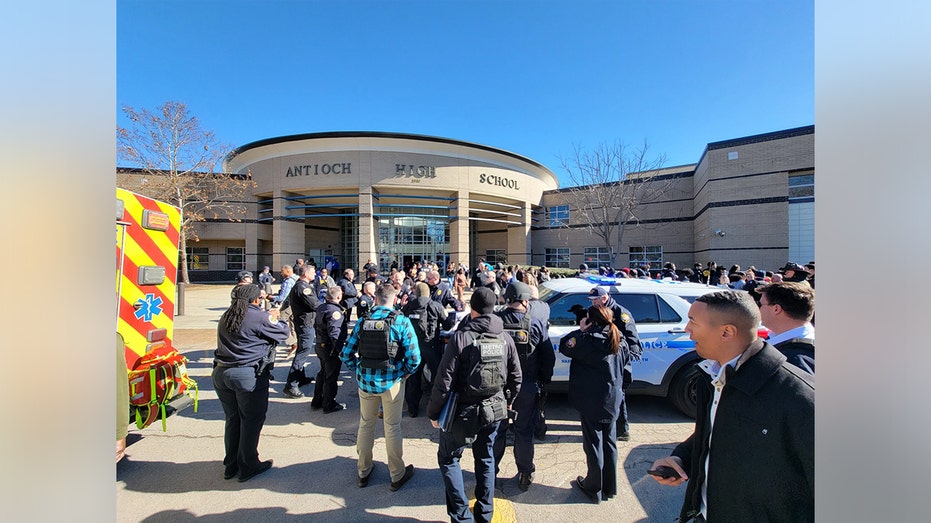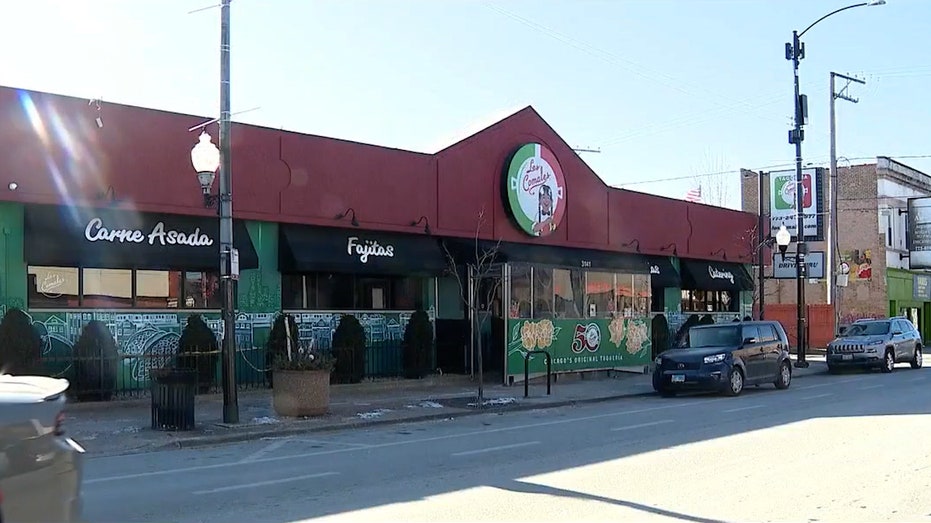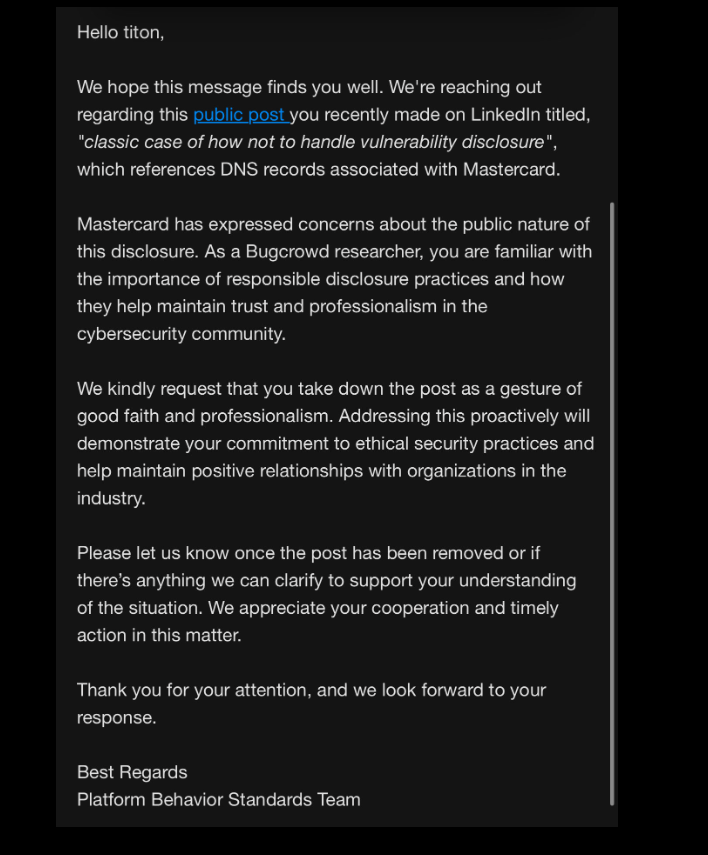How Will Immigration Crackdowns Affect Restaurants?
Thomas Barwick/Getty Images The recent termination of workers in New York and Boston highlights the vulnerability of restaurant employees without legal status In 2005, Fulton Fish Market, which supplies New York City with nearly half its seafood, left the Seaport for a new location in the South Bronx. The building remained vacant for a decade before developer Howard Hughes Corporation began talks with prolific chef Jean-Georges Vongerichten about opening a food destination in the space. By 2022, after a $194.6 million overhaul of the 53,000 square-foot landmark, the chef and his partners opened a collection of six full-service restaurants, four bars, a handful of counter-service spots, retail, and private dining. At full tilt, it would employ 700 people in the two-story former fish market, renamed the Tin Building. Last week, Gothamist reported that Seaport Entertainment Group, which prepared for a January takeover of the Tin Building, surprised workers with a mandatory background check and discontinued the employment of many workers. (A spokesperson for Seaport Entertainment Group disputes the exact number reported by Gothamist, but did not provide a number of affected employees.) The company used E-Verify, a government tool operated by U.S. Citizenship and Immigration Services (USCIS) in partnership with the Social Security Administration (SSA), to vet employees’ identity and employment eligibility. Kitchen and custodial workers who are in the U.S. without legal status — many of whom immigrated from countries in Latin America — were hit hardest, according to Gothamist’s sources. “I was out for two days, and when I got back half the building was gone,” a worker said to Gothamist. It’s an open secret that the restaurant industry in particular runs on the backs of workers without legal status. There are close to 700,000 undocumented immigrants in New York, according to a 2022 study from the Center for Migration Studies — and that does not account for the over 200,000 migrants who have come to the city since then in what’s now called a “migrant crisis.” Nationwide, according to a study from CMS released in 2024, as many as 8.3 million undocumented immigrants work in the U.S. economy, representing 5.2 percent of the workforce. Of those, around a million people or more work in restaurants. The termination of those without legal status is happening elsewhere in the industry. In Boston, Tatte Bakery and Cafe, with close to 30 locations in the region (as well as nearly 20 locations in Washington, D.C.) recently laid off around 60 of its 2,500 workers. The terminations occurred after Massachusetts employees were “flagged by the Internal Revenue Service over paperwork discrepancies that could be tied to their immigration status,” the Boston Globe reported. “I was out for two days, and when I got back half the building was gone.” Back in the fall, Tatte gave workers a week to submit their paperwork. Beyond that, Tatte wrote in a letter to employees, “we will consider you to have voluntarily resigned from your position.” A majority of the group resigned, a spokesperson told Eater: “While supporting our employees is a priority, we must comply with the law.” They also confirmed the Globe reporting that the company would pay for up to $4,000 in reimbursement for immigration-related expenses, including attorney fees. Ahead of Donald Trump’s swearing-in as president for the second time — Trump has promised to deport millions of immigrants without legal status — the recent incidents highlight the precarious position of undocumented workers and the restaurants that rely on them in a multiyear staffing crunch. They also trigger fears over how widespread the impending immigration crackdown will be, and how deeply it will affect lives and livelihoods. How E-Verify works and why it’s controversial E-Verify relies on the Immigration Reform and Control Act, which was signed into law during the Reagan administration. The bill introduced what today is known as the Employment Eligibility Form, the I-9. After a potential employee has filled out an I-9, employers who have enrolled in E-Verify enter the information from the I-9 into a database to determine if they are legally authorized to work in the U.S. Whether a business uses E-Verify depends on the state. Seven states (Alabama, Arizona, Florida, Georgia, Mississippi, South Carolina, and Tennessee) require employers to use E-Verify. Over a dozen states require E-Verify for public employers and contractors. The ACLU says in a video that E-Verify is, “in essence, a giant list of everybody in the United States who’s allowed to work.” The problem, it argues, is that the list “has to be completely accurate,” which is difficult to do with 154 million workers; mistakes could result in people being unable to work. Free for employers, E-Verify either confirms that a person can work, or flags a person’s information, preventing them from working or holding up ap


The recent termination of workers in New York and Boston highlights the vulnerability of restaurant employees without legal status
In 2005, Fulton Fish Market, which supplies New York City with nearly half its seafood, left the Seaport for a new location in the South Bronx. The building remained vacant for a decade before developer Howard Hughes Corporation began talks with prolific chef Jean-Georges Vongerichten about opening a food destination in the space. By 2022, after a $194.6 million overhaul of the 53,000 square-foot landmark, the chef and his partners opened a collection of six full-service restaurants, four bars, a handful of counter-service spots, retail, and private dining. At full tilt, it would employ 700 people in the two-story former fish market, renamed the Tin Building.
Last week, Gothamist reported that Seaport Entertainment Group, which prepared for a January takeover of the Tin Building, surprised workers with a mandatory background check and discontinued the employment of many workers. (A spokesperson for Seaport Entertainment Group disputes the exact number reported by Gothamist, but did not provide a number of affected employees.) The company used E-Verify, a government tool operated by U.S. Citizenship and Immigration Services (USCIS) in partnership with the Social Security Administration (SSA), to vet employees’ identity and employment eligibility. Kitchen and custodial workers who are in the U.S. without legal status — many of whom immigrated from countries in Latin America — were hit hardest, according to Gothamist’s sources. “I was out for two days, and when I got back half the building was gone,” a worker said to Gothamist.
It’s an open secret that the restaurant industry in particular runs on the backs of workers without legal status. There are close to 700,000 undocumented immigrants in New York, according to a 2022 study from the Center for Migration Studies — and that does not account for the over 200,000 migrants who have come to the city since then in what’s now called a “migrant crisis.” Nationwide, according to a study from CMS released in 2024, as many as 8.3 million undocumented immigrants work in the U.S. economy, representing 5.2 percent of the workforce. Of those, around a million people or more work in restaurants.
The termination of those without legal status is happening elsewhere in the industry. In Boston, Tatte Bakery and Cafe, with close to 30 locations in the region (as well as nearly 20 locations in Washington, D.C.) recently laid off around 60 of its 2,500 workers. The terminations occurred after Massachusetts employees were “flagged by the Internal Revenue Service over paperwork discrepancies that could be tied to their immigration status,” the Boston Globe reported.
Back in the fall, Tatte gave workers a week to submit their paperwork. Beyond that, Tatte wrote in a letter to employees, “we will consider you to have voluntarily resigned from your position.” A majority of the group resigned, a spokesperson told Eater: “While supporting our employees is a priority, we must comply with the law.” They also confirmed the Globe reporting that the company would pay for up to $4,000 in reimbursement for immigration-related expenses, including attorney fees.
Ahead of Donald Trump’s swearing-in as president for the second time — Trump has promised to deport millions of immigrants without legal status — the recent incidents highlight the precarious position of undocumented workers and the restaurants that rely on them in a multiyear staffing crunch. They also trigger fears over how widespread the impending immigration crackdown will be, and how deeply it will affect lives and livelihoods.
How E-Verify works and why it’s controversial
E-Verify relies on the Immigration Reform and Control Act, which was signed into law during the Reagan administration. The bill introduced what today is known as the Employment Eligibility Form, the I-9.
After a potential employee has filled out an I-9, employers who have enrolled in E-Verify enter the information from the I-9 into a database to determine if they are legally authorized to work in the U.S. Whether a business uses E-Verify depends on the state. Seven states (Alabama, Arizona, Florida, Georgia, Mississippi, South Carolina, and Tennessee) require employers to use E-Verify. Over a dozen states require E-Verify for public employers and contractors.
The ACLU says in a video that E-Verify is, “in essence, a giant list of everybody in the United States who’s allowed to work.” The problem, it argues, is that the list “has to be completely accurate,” which is difficult to do with 154 million workers; mistakes could result in people being unable to work. Free for employers, E-Verify either confirms that a person can work, or flags a person’s information, preventing them from working or holding up approval for them to work in a number of ways. The results may include “tentative nonconfirmation,” which requires the employee to provide additional information; “review and update employee data,” which is not legal in the state of California (to prevent discrimination based on immigration status and to protect workers from retaliation); “Department of Homeland Security verification in process,” which takes an additional three days for DHS to verify; and SSA or DHS “case in continuance,” in which more time is needed to determine worker eligibility. The latter can arise when an employee has contacted DHS to update their information regarding citizenship or if they’ve changed their name, for example.
In the case of the Tin Building, Seaport Entertainment Group vetted employees via E-Verify as it prepared to take over management of the building in December 2024. When the Tin Building opened in 2022, Creative Culinary Management Company verified workers’ identities using a different system, a spokesperson told Eater. Of the people sidelined from the Tin Building payroll, Seaport Entertainment Group said those who could provide paperwork within 10 days back in late December could return to work, and those who could not would get severance.
How Trump’s immigration promises could play out
The Tin Building and Tatte examples raise concerns for the fate of immigrants over the next few years, and serve as reminders of earlier incidents like one in 2019, when 680 workers were deported from several Mississippi poultry plants, or when, in 2016, 30 employees were terminated by Vetri Family Restaurants. In the latter case, much like the Tin Building, new owner Urban Outfitters already had E-Verify in place, so when it screened restaurateur Marc Vetri’s staff, those employees didn’t pass verification and were let go. “It just sucks,” Vetri told Philly Magazine at the time. “But this is what America is. My grandfather left Italy when he was 17 years old, stowed away on a ship. He got here illegally. But now you have a different circumstance. You have second- and third-generation immigrants who have raised families here, and there’s still no real road for them to get legal, even though they are the fabric of our society.”
Since 2019, immigration enforcement has been funded at a higher rate than labor standards enforcement, the Economic Policy Institute reported. And that gap continues to widen. In 2023, as the migrant crisis continued, ICE officers conducted over 170,000 administrative arrests, representing a 19.5 percent increase over the previous year — more than any year of the Trump presidency, ABC News reported.
With an incoming Republican majority, Trump says he’ll be able to dedicate even more resources to deportation — citing an exaggerated 20 million people living in the U.S. without legal status. His intentions gain momentum as he is allegedly in the process of purging civil servants who did not vote for him, and some Democratic members of Congress have about-faced to join the anti-immigration bandwagon.
In addition, Trump has indicated that he may try “declaring a national emergency that allows him to use the military to remove people from the country,” according to the Washington Post, though it’s unclear if Trump could actually have such broad authority. He may have the authority to expand detention facilities instead, which he did in his first term, after which the ACLU, Human Rights Watch, and National Immigrant Justice Center released a report on “the paltry conditions and medical care” and due process obstacles immigrants faced.
During his first term, Trump also tightened requirements for H1-B visas by narrowing standards for eligibility, shortening the validity period, and prescribing wage guidelines. This affected businesses’ ability to sign on workers with specialized skills — including at restaurants, which, back then, had trouble hiring, say, noodle pullers for a restaurant in a Chinese neighborhood, or an experienced international chef for a fine dining restaurant. Now, seven years later, the same discussion over the hiring of specialized labor reveals a MAGA fault line between Elon Musk and nativist hard-liners. Last month, the fight started online when Musk and Vivek Ramaswamy, co-chairs of President-elect Trump’s new “Department of Government Efficiency,” posted concerns that there were too few trained engineers in the U.S. that would help companies advance technology. “The number of people who are super talented engineers AND super motivated in the USA is far too low,” Musk wrote on X. “If you force the world’s best talent to play for the other side, America will LOSE.”
Calling for immigration reform
Spokespeople for the Tin Building and Tatte have emphasized that the timing ahead of the new administration was coincidence. (It was a planned transaction disclosed in the latest securities filing, a spokesperson from the Tin Building said.) But as Reuters reported last month, the restaurant industry will likely be one of the industries most affected by potential crackdowns. “Sweeping deportations pledged by President-elect Donald Trump could pose an economic shock for the restaurant industry in ways that echo the pandemic: pricier menus, rising wages, and shuttered storefronts, economists and some restaurateurs worry.”
Outspoken restaurateurs during the first Trump administration may be gearing up to fight on behalf of the industry again. José Andrés, the force behind World Central Kitchen, has been the biggest and most outspoken critic of Trump’s immigration policies. In 2015, Andrés backed out of a restaurant deal from Trump International Hotel in Washington, D.C., following Trump’s statements mischaracterizing Mexican immigrants as “rapists” and criminals. The Trump Organization filed a $10 million lawsuit against him for breach of contract, then Andrés countersued. Both parties reached a confidential settlement by 2017. That same year, Andrés participated in initiatives such as “A Day Without Immigrants,” closing several of his restaurants for the day to highlight the vital role of immigrants in the U.S. economy and to protest against the administration’s stance on immigration.
“Immigration reform has to happen,” Andrés said in September at a Fast Company conference. “Everybody is employing them everywhere, in blue and red states, and they are part of the economy.” He cited businesses that need immigrant workers, “but the government is not giving them the visas to do it the right way. If I’m opening a Spanish restaurant and I want to bring five people from Spain to help me make paella, give me a way to do that,” he said.
But in texting with a reporter from Washingtonian magazine the day after the election, Andrés was optimistic. “We had republican and democrat presidents since I arrived 32 years ago ... we will be fine. USA will be fine.” He also questioned the scope of Trump’s mass deportation plans. “He would not be able to deport ... because he will need them to build the country and run it ... including his own wineries and hotels.”
What's Your Reaction?






























.jpg?width=1920&height=1920&fit=bounds&quality=80&format=jpg&auto=webp#)



















![Trump’s FAA Shake-Up: DEI Gone, But Safety Questions Remain [Roundup]](https://viewfromthewing.com/wp-content/uploads/2024/01/DALL·E-2024-01-24-12.35.35-A-wider-view-of-an-overworked-air-traffic-controller-in-a-control-tower-captured-from-a-side-angle.-The-controller-is-visibly-stressed-with-sweat-on.png?#)































